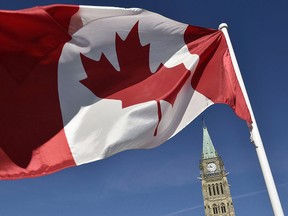Part of the pursuit is to diversify away from China, which is Canada’s second-largest trading partner
Article content
Canada and the Association of Southeast Asian Nations agreed to start formal talks, a move that could aid the Liberal government’s push to gain broader access to the Asian market and shift focus away from China.
Advertisement
This advertisement has not loaded yet, but your article continues below.
Article content
Trade Minister Mary Ng announced on Nov. 16 that negotiations for a free-trade agreement would commence following a virtual meeting this week with economic ministers from the 10-member group that comprises emerging economies such as Indonesia, Singapore, and Vietnam. The bloc has a combined gross domestic product of $5 trillion and a population of 650 million, making it the fifth largest economy in the world with the third most-populous consumer market, according to Canadian government figures.
“This is a significant milestone in the renewal and deepening of Canada’s economic partnerships and commercial engagement across the Indo-Pacific,” Ng said in a statement . She will table a notice of intent to enter negotiations in the House of Commons before the first round of talks begin. The earliest that the notice will be filed would be on Nov. 22 when Parliament resumes.
Advertisement
This advertisement has not loaded yet, but your article continues below.
Article content
While Canada has trade agreements with some ASEAN members, including Singapore and Malaysia, through the Trans-Pacific Partnership, a separate deal would boost Prime Minister Justin Trudeau’s efforts to broaden Canada’s list of significant trading partners. Part of the pursuit also is to diversify away from China, which is Canada’s second-largest trading partner with total trade amounting to $101.8 billion in 2020.
The COVID-19 pandemic slowed the flow of goods between China and Canada at the height of viral waves and disrupted supply chains, which the globe is still contending with. On top of that, relations between Canada and China are at an all-time low following a nasty spat over Canada’s arrest of Huawei Technologies Co. Ltd.’s executive Meng Wanzhou at the behest of the United States. This led to the detention of Canadian diplomat Michael Kovrig and Canadian businessman Michael Spavor that lasted nearly three years before a prisoner-style swap saw all three freed in September.
Advertisement
This advertisement has not loaded yet, but your article continues below.
Article content
Dan Ciuriak, former deputy chief economist at Canada’s trade department, said the Liberal government’s initial motivation to negotiate preferential trade terms with ASEAN was to create a counterweight to China as an export destination in Asia, but that’s changed slightly because of lessons from the pandemic
-

Evan Fraser: B.C. storms a reminder that our food supply system leaves us ‘nine meals from anarchy’
-

Canada’s inflation rate soars to almost 20-year high, raising odds of earlier rate hike
-

Gen Z has $360 billion to spend — the trick is getting them to buy
“The problem, now, is diversification, period,” Ciuriak said. “You need to have redundant sources of supply because you never know which region is going to shut down,” he added. “It’s a pure case of hedging risk.”
Advertisement
This advertisement has not loaded yet, but your article continues below.
Article content
In June, Canada announced it would begin negotiating a trade deal with Indonesia and those talks could get wrapped into an ASEAN agreement, Ciuriak said. If successful, it could position Canada to negotiate entry the Regional Comprehensive Economic Partnership that is set to enter into force at the start of 2022, which notably includes China. (India, which was an original negotiating party, dropped out at the eleventh hour but could reenter at any time). China and India have been elusive trading partners for Canada. ASEAN had bilateral deals with RCEP members prior to joining but holds no agreements with other nations.
Carlo Dade, director of trade and investment at think-tank Canada West Foundation, said an ASEAN deal could be a headache for domestic businesses to navigate as some of the Southeast Asian countries fall under Canada’s agreement with TPP. He said Canadian efforts would be better focused on trying to push ASEAN members to join the TPP, which has higher quality rules surrounding issues such as human rights, labour and environmental protections. “(Comparatively), we’re not going to get as good a deal,” he said.
Canada could also land in hot water in scratching out deals that would include the likes of Myanmar and the Philippines, countries with histories of human rights violations that would contradict the Liberals’ push for progressive trade policies, Dade said. “That’s a head-scratcher.”
Bloody unrest has taken over Myanmar since the military launched a violent coup in February to unseat quasi-democratic leader Daw Aung San Suu Kyi. More than 600 civilians have died.
• Email: bbharti@postmedia.com | Twitter: biancabharti
Advertisement
This advertisement has not loaded yet, but your article continues below.
Canada to start trade talks with Association of Southeast Asian Nations
2021-11-17 22:09:45






